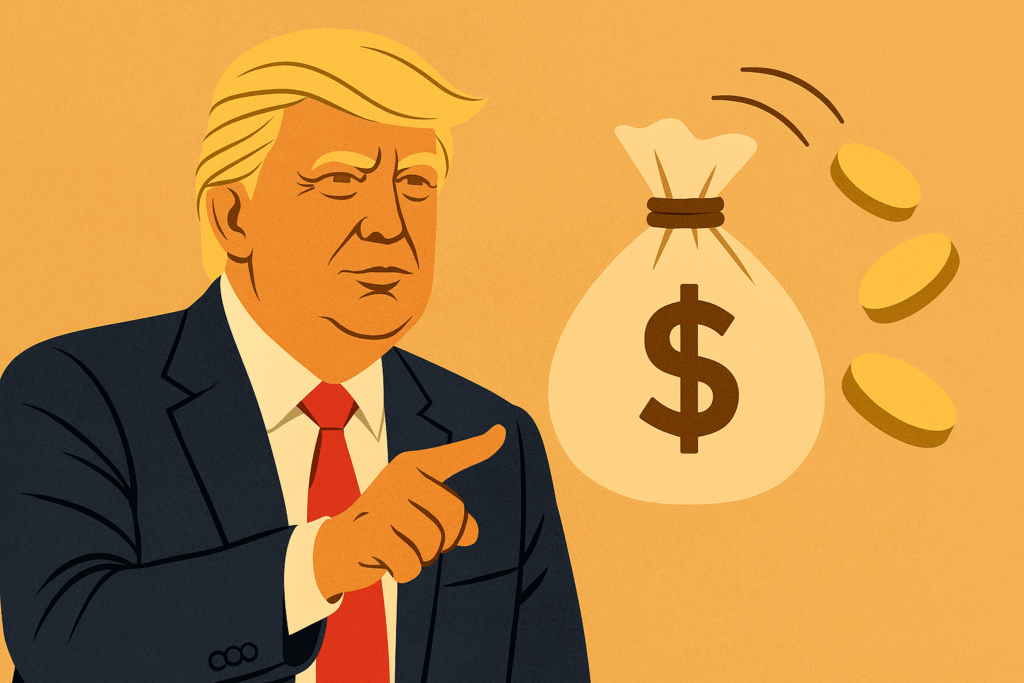President Donald Trump announced on Thursday that his administration is considering issuing rebates to American taxpayers, citing a windfall of revenue generated from tariffs imposed on foreign imports. Speaking to reporters ahead of a trip to Scotland to finalize a trade agreement with the United Kingdom, Trump said the U.S. Treasury has already collected substantial sums, prompting discussions of returning some of that money to citizens.
“We have so much money coming in, we’re thinking about a little rebate,” Trump said.
According to White House Press Secretary Karoline Leavitt, tariffs currently in effect have generated more than $100 billion. The administration expects that figure to climb into the trillions over the coming years as additional tariffs take effect.
Potential Rebates Tied to Income Thresholds
While President Trump did not specify how large the rebates would be or who would qualify, he suggested they may be targeted toward Americans within certain income brackets.
“We’re thinking about a rebate because we have so much money coming in from tariffs that a little rebate for people of a certain income level might be very nice,” he noted.
Any rebate program would require approval from Congress. Given that both the House and Senate are currently controlled by Republican majorities aligned with the president, such legislation could face fewer obstacles.
Tariffs: Revenue, Risk, and Repercussions
Trump’s administration launched its tariff program on April 2, initially targeting goods such as steel and aluminum. Though he temporarily paused the global rollout in response to market volatility and international backlash, the president has since resumed the policy with renewed intensity.
Letters have been sent to 25 countries warning that new tariffs will take effect on August 1 unless individual trade agreements are reached. In recent months, Trump has successfully negotiated bilateral trade deals with Japan, South Korea, the Philippines, and the United Kingdom, and is in ongoing discussions with China.
Despite the revenue boom, economists caution that tariffs can have negative side effects — including higher consumer prices and slower economic growth. Trump acknowledged these concerns but emphasized that his top priority is reducing the national debt.
“The big thing we want to do is pay down debt,” he stated. “But we’re thinking about rebates.”
What Comes Next?
As the August 1 deadline looms for new tariffs, Trump’s comments indicate a strategic shift — using tariff revenue not just as a negotiating tool in trade, but also as a domestic political lever. Whether Congress will support the idea of rebates remains to be seen, but the proposal could emerge as a prominent issue in upcoming budget debates.



